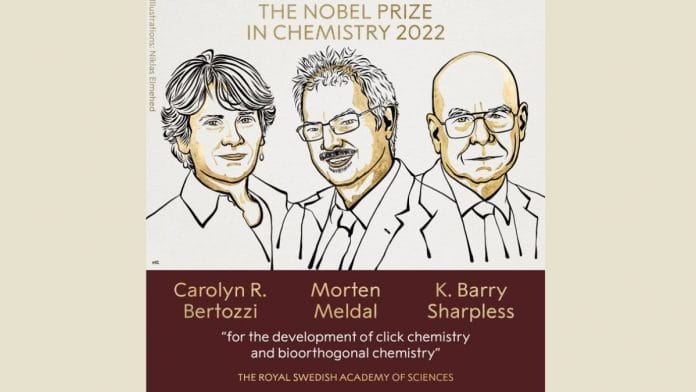The technologies known as click chemistry and bioorthogonal chemistry are now used globally to explore cells and track biological processes, the award-giving body said in a statement.
“Using bioorthogonal reactions, researchers have improved the targeting of cancer pharmaceuticals, which are now being tested in clinical trials,” it added.
The prize was awarded by the Royal Swedish Academy of Sciences and is worth 10 million Swedish crowns ($915,072).
The third of the prizes unveiled over six consecutive weekdays, the chemistry Nobel follows those for medicine and physics announced earlier this week.
Sharpless joins an elite band of scientists who have won two Nobel prizes. The other individuals are John Bardeen who won the Physics prize twice, Marie Curie, who won Physics and Chemistry, Linus Pauling who won Chemistry and Peace and Frederick Sanger who won the Chemistry prize twice.
“I’m absolutely stunned, I’m sitting here and I can hardly breathe,” Bertozzi said from California after the academy reached her by telephone with the news she had won.
The 2021 chemistry award was won by German Benjamin List and Scottish-born David MacMillan for their work in creating new tools to build molecules, aiding in the development of new drugs as well as in areas such as plastics.
The prizes for achievements in science, literature and peace were established in the will of Swedish dynamite inventor and businessman Alfred Nobel, himself a chemist, and have been awarded since 1901. Economics was added later.
The prizes have been awarded every year with a few interruptions, primarily for the world wars, and made no break for the COVID-19 pandemic though much of the pageantry and events were put on hold or temporarily moved online.
($1 = 10.9281 Swedish crowns)
Also read: Salman Rushdie among bookie favourites in UK to win Nobel Prize






